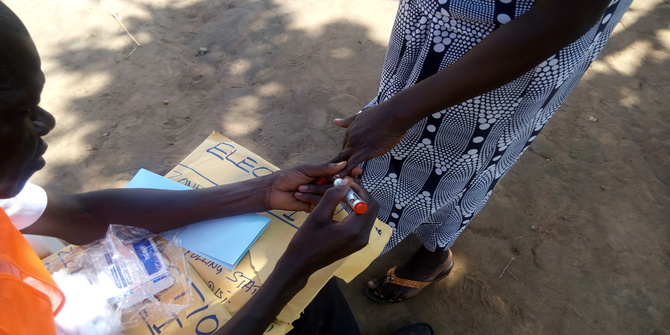Kate Dawson says Open City Lagos does well to facilitate an open dialogue, setting the tone for future discussions on cities and inclusivity.
New Urban Worlds
In 2016, UN Habitat released the World Cities Report, warning that global urbanisation would continue apace at unprecedented rates, ushering in ‘new urban worlds’ (Simone and Pieterse, 2017) throughout the twenty-first century. We are told that such a transition presents a myriad of complex challenges and opportunities, which span social, economic and ecological boundaries and are likely to unfold in sometimes unpredictable fashions (New Urban Agenda, 2017). It is within this vein that Open City Lagos (OCL), a collaborative project between Heinrich Boll Stiftung, Nsibidi Institute and Fabulous Urban brings together a collection of commentaries, in-situ narratives and detailed accounts from cities worldwide and asks us to think more closely about what ‘sustainable forms of spatial and socio-economic inclusiveness’ may look like in these urban worlds (OCL, 2016:iv). Speaking from Nigeria’s economic hub, Open City Lagos opens the floor with big ger questions about the future of our cities and their potential for inclusive transitions. They remind us that while cities are ‘open settlements’ with diverse groups of people and activities, we are facing worldwide challenges over who can access the city and the degree to which people are able to engage with one another on-the-ground. Such talking points dovetail with important sentiments in urban disciplines more broadly, notably expressed in the Quito Papers, which were unveiled in conjunction with the UN Habitat III conference on Housing and Sustainable Urban Development in Quito, Ecuador in 2016. In the short film ‘The Quito Papers: Towards an Open City’, leading figures in the discipline urged us to rethink our approach to the city. Here, they advocate devising creative ways of inhabiting the world’s multiplying urban spaces and pursuing trajectories towards open urban environments that provide access to diverse public realms and generate possibilities for deep social engagement.
ger questions about the future of our cities and their potential for inclusive transitions. They remind us that while cities are ‘open settlements’ with diverse groups of people and activities, we are facing worldwide challenges over who can access the city and the degree to which people are able to engage with one another on-the-ground. Such talking points dovetail with important sentiments in urban disciplines more broadly, notably expressed in the Quito Papers, which were unveiled in conjunction with the UN Habitat III conference on Housing and Sustainable Urban Development in Quito, Ecuador in 2016. In the short film ‘The Quito Papers: Towards an Open City’, leading figures in the discipline urged us to rethink our approach to the city. Here, they advocate devising creative ways of inhabiting the world’s multiplying urban spaces and pursuing trajectories towards open urban environments that provide access to diverse public realms and generate possibilities for deep social engagement.
Learning from Lagos
In tune with worldwide calls for open cities, Open City Lagos makes a call for ‘learning from Lagos’ (Gandy, 2006) by exploring the ‘open moments, spaces and strategies’ in the city (OCL, 2016:iii). Eager to avoid romanticism and overly prescriptive analyses, they bring together stories of citizen engagement, fleeting encounters and government interventions, that ‘create, sustain or jeopardise opportunities for cultural and social exchange and innovation’ (OCL, 2016:iv). Why begin with Lagos? Lagos is the economic powerhouse of Nigeria and the eighth fastest growing city in Africa, growing at approximately 85 people per hour. Though estimates vary, its population has grown from around 5 million in 1980 to 20 million at present day, producing dynamic economies and social systems in the face of infrastructural challenges. Indeed, as the axes of urbanisation shift to Africa and Asia, beginning with Lagos makes sense.
However, it is not enough to talk about Lagos alone, nor contain it within an African urbanism framework. Rather, OCL’s philosophy dovetails with Gandy’s argument that a focus on an African city such as Lagos, ‘has the potential to illuminate not just a peculiarly African experience, but also raise wider questions about the nature of modernity, urban governance and the interactions between global capital flows and the material conditions of actually existing cities in the global South’ (2006:374). Indeed, far from isolating Lagos in a conversation about African cities alone, OCL make a call for enacting a conversation between urban spaces worldwide, placing Lagos in dialogue with cities like Berlin and Jakarta. OCL thus position their publication as a ‘conversation enacted across Lagos and with other cities, with a focus on the day-to-day experiences, grassroots initiatives and new opportunities for development and inclusion’ (OCL, 2016).
Four Conversations
The publication is divided into four themes: governance and participation; cultural narratives and urban aesthetics; economic opportunities and real life stories; and migration and spaces of negotiation; each of which is comprised of 4-6 smaller chapters focusing on one or two cities. Lagos is prominent in each theme but varies in its contributions, ranging from analyses of grand urban plans to visual narratives of the city. The themes are well separated and accommodate vocabularies in both academia and policy, thus able to reach a wide audience. In fact, the publication’s strengths are just that, offering empirical, visual and policy-oriented analyses.
In the first theme on governance and participation, Lagos is presented alongside Jakarta and Berlin. Setting the scene with considering what might constitute a ‘good Lagos’ in the face of new private developments and business districts, the author suggests we might look to Brazil to explore practices of citizen engagement and local participation. Discussions continue about Lagos’ surrounding business support systems, incubation models and gender, as well as broader debates around a ‘smarter Lagos’ and the implementation of city-wide technologies to promote participation, accountability and new visibilities. Indeed, bringing to light residents’ own engagements with digital platforms as well as the potential for new digital exclusions, the final chapters discuss Lagos as an online city and how platforms like Twitter may be used to influence governance and urban planning for the betterment of city dwellers’ lives. The conversation moves to Jakarta discussing leadership, creative festivals and heritage building maintenance and finally Berlin, where the author discusses the challenges facing the creative capital and the need to preserve the presence of a certain kind of urbanity.

In the second theme on cultural narratives and urban aesthetics, the conversation begins with a comparison between Cape Town and Dakar and the degrees to which these cities invite urban dwellers to meander in the city and develop individual spatial literacies. In an interesting move to Beirut, the author discusses the bordering practices in a district of civil unrest, eliciting the spatial practices embedded in everyday life and the potential for crossing these districts in dispute. The final two chapters return to Lagos, narrating the city through sketches of its heritage buildings and black and white photography, ‘stripping away the stereotypical portraits of the city’ and exposing its more invisible layers (OCL, 72).
The third theme focuses our attention on real life stories and economic challenges in New Delhi and Lagos. In India’s capital, the author discusses existing schemes of micro-system waste collection that thrive on their ability to adapt to local changes but present difficulties when attempting to scale up activities. Returning to Lagos in the next three chapters, the authors touch on livelihood insecurities in the street food business, struggles for space in market redevelopments and provide illustrated observations of street life.
The final theme surrounds issues of migration and cities as sites of negotiation. Here, the theme opens with a discussion of the Cities of Sanctuary movement in UK. Discussing its evolution as a policy to welcome refugees and its growth into a network of cities around the UK, the author discusses the challenges of politicising the movement and bringing about effective change within the central government. In Accra, the author discusses the potential of building a new cultural economy inclusive of local residents. In the final two chapters, we return to Lagos, where the authors contemplate how we might meet current and future infrastructural demands and how we have much to learn from existing informal settlements and community led solutions.
Open Cities, Open Dialogue
Together, the chapters span cities, narratives and temporalities and offer up both empirical insights and thoughtful ruminations on the presents and futures of our cities and their potential to bring about inclusive change. Centring Lagos in a dialogue with cities worldwide speaks to important developments in urban studies, namely Jennifer Robinson’s calls for a comparative urbanism. Here, we are to bring cities into a shared field of analysis, where no one city is considered more ‘modern’ than another, but rather we are to value mulitiplicity and recognise shared histories and future differences (2002, 2006, 2015). While Open City Lagos makes these first moves toward a comparative urbanism, it would do well to offer a more sustained critique based upon the themes presented. What does a conversation between Lagos, Jakarta and Berlin tell us about governance and participation more broadly? What do we learn about urban aesthetics through facilitating dialogue between Cape Town, Dakar, Beirut and Lagos? What is different and similar about economic challenges facing New Delhi and Lagos? And how do experiences in the UK, Accra and Lagos offer us direction for pursuing open cities? Though I appreciate the space provided for our own interpretation, a critical engagement which brings the cities together to say something ‘bigger’ about the themes would be a welcome addition.
In conclusion, Open City Lagos delivers critical space for creative discussion of cities beyond romantic accounts of resilience or appeals to overly prescriptive conclusions. In doing so, we are reminded of the ambiguity embedded in urban change and the need to blur boundaries between aesthetic practice and policy-making to begin to get a grasp of what is and indeed should be happening in cities worldwide. By bringing together a diverse set of academics, policymakers and artists, Open City Lagos provides a much-needed conversation on what may constitute urban openness in an increasingly ‘closed off’ world and gestures toward an exciting way of advancing a global discourse on cities. Indeed, at a time when things seem to be closing in and our national borders are solidifying in new ways at alarming rates, a conversation which centres openness is extremely welcome.
Open City Lagos by hbs Nigeria, Nsibidi Institute Lagos and Fabulous Urban Zurich
Kate Dawson (@KateEDaws) is a doctoral researcher in LSE’s Department of Geography and Environment.
The views expressed in this post are those of the author and in no way reflect those of Africa at LSE blog or the London School of Economics and Political Science.





